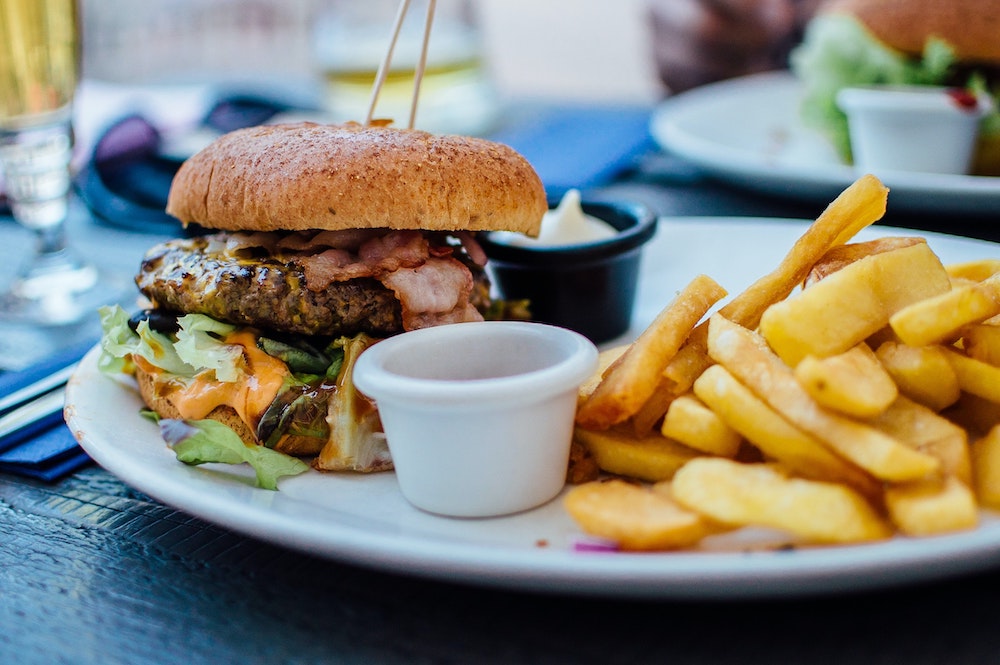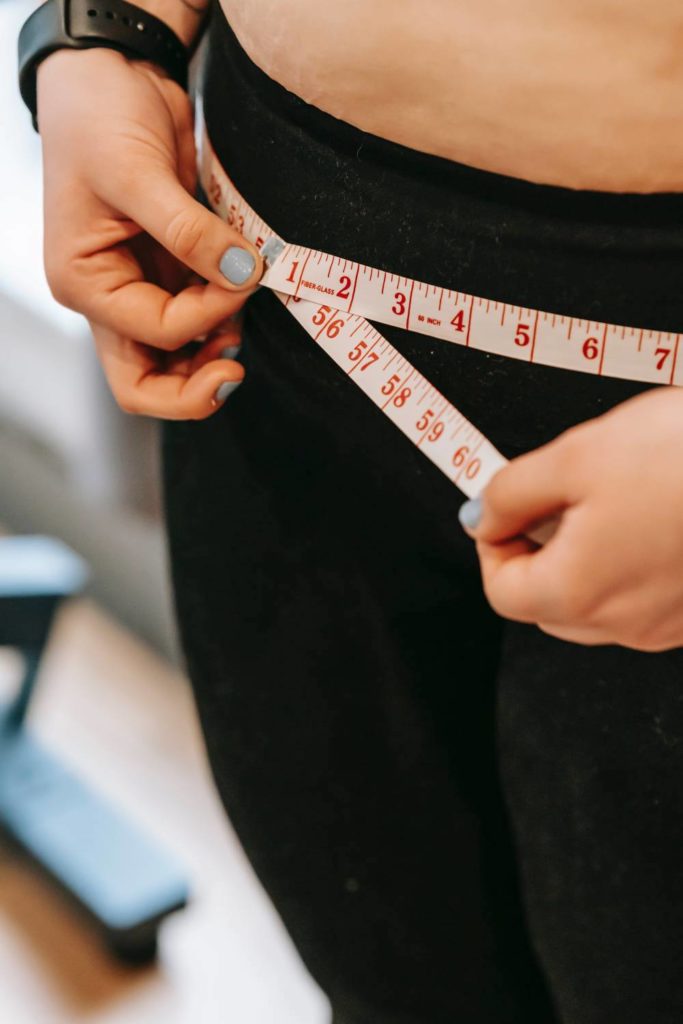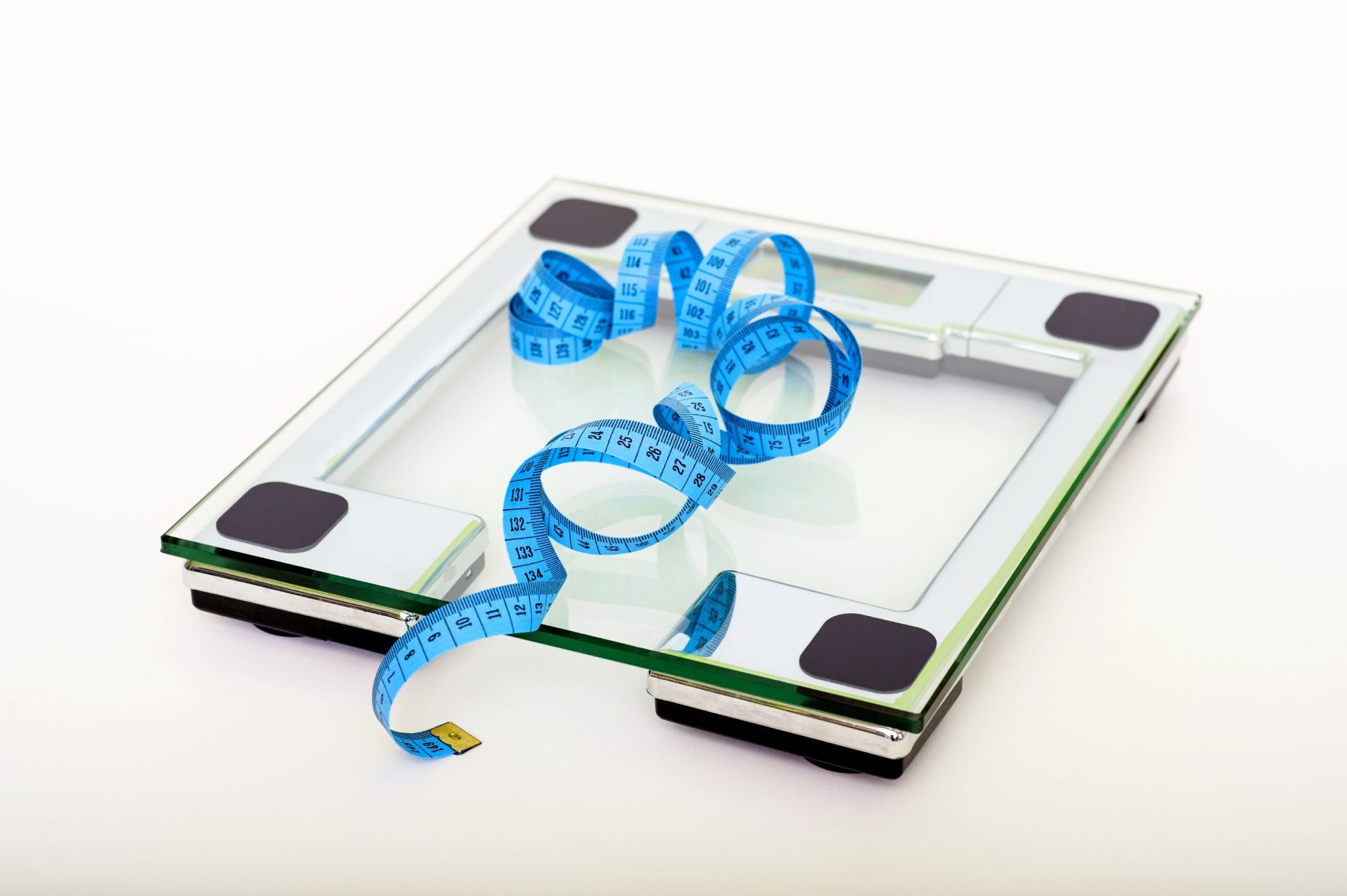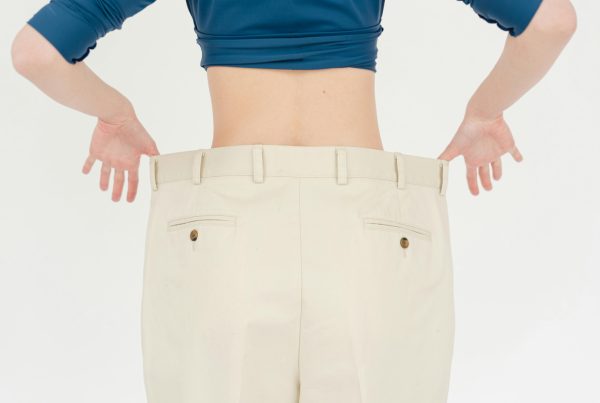None of these reasons actually relate to fat. Let’s look at the 4 most common reasons why you might be heavier on the scales than you’d expect.
So, you have just invested in a new set of weighing scales for the bathroom as you embark on your health and fitness journey. You will soon discover that your weight is fluctuating frequently, even up to each hour.
I’m Jack and I specialise on fitness and female fat loss. I can tell you that your scales are not broken, but that this is totally normal. In fact, you can expect your weight to fluctuate up to 6 pounds per day depending on the time of the day that you weigh yourself.

Does this sound familiar?
Whilst no one enjoys jumping on the scales to see that they have gained a few pounds. We need to make it clear that weight gain DOES NOT mean fat gain. They are two different things.
Even though weighing yourself can be a good way to track progress, there needs to be a couple of considerations before you judge your progress solely on it.
It is important to note that
“Your gravitational pull to the floor does not define your self worth.”
Understand that in order to actually gain 1 POUND of fat, you would have to consume 3,500 calories above your Total Daily Energy Expenditure.
To put this into numbers, let’s say your maintenance calories are at 2,500 You would need to consume 6,000 calories to gain just 1 pound of fat. That’s an equivalent of 23 Big Macs!
Do you still think that pound you put on the scales after your dinner is body fat
Let’s consider these scenarios:


1. Food & Drink
It’s 7am in the morning. You have woken up and weighed yourself, you then go downstairs to help yourself to a nice litre bottle of water.
You then decide you want to jump back on the scales to find you have put 2 pounds on. So what does this mean?
The water you have consumed has weight, that weight has been added to your body.
This is going to lead to an immediate gain in weight.
So do you really think that being more hydrated means you have put on body fat?
It is the same principle with food too.
That extra weight will eventually disappear either as fuel or to be stored as energy to use later.
So don’t spend any time worrying about weight fluctuations after a meal – it’s natural and normal.
This in fact explains why your weight is highest on Sunday night (after a weekend of eating and drinking) and lowest on a Friday morning.
2. Menstrual Cycle
You may notice your weight higher than normal during the week leading up to your period, this is due to higher amounts of water retention, not BODY FAT.
This will begin to reduce within a few days of your cycle beginning.
The fluid retention is at its lowest during the mid-follicular period (end of week 2) and then will gradually increase after that.
One thing I tell all my female clients is to not compare weight week to week, due to these varied amounts of fluid retention at different stages of the cycle.
“Weight loss for women is not linear and it should not be treated that way!” Here is a solution, instead start comparing:
- Week 1 to Week 1
- Week 2 to Week 2
- Week 3 to Week 3
- Week 4 to Week 4


3. Carbohydrate Intake
Food high in carbohydrates will cause your body to retain water. Your weight will spike until the bloat subsides.
Carbohydrates are the body’s primary go-to fuel source for energy.
If you consume a high carb day such as one that contains bread, rice and pasta, you may see a gain on the scales, due to higher levels of water retention, not body fat.
This is because your body likes to hold carbs to use later as a fuel source. Every 1g of carbohydrates you consume, the body will retain 3g of water.
So next time you consume a lovely bowl of pasta and your weight instantly increases, don’t panic! It’s not fat gain, simply just water weight, which will soon leave your body. Do not give up on carbs, they are a big source of energy!
4. Bowel Movements
Your body will use foods and fluids as a source of energy on a daily basis. Once your body has used what it needs to, it will begin to remove the leftovers through sweat, urine and stool – causing weight to fluctuate.
You will see fluctuations on the scale daily due to bowel movements.
Generally a stool will weigh anywhere from 72g to 470g per day, meaning you could easily see a fluctuation of up to a pound from simply using the toilet. If you were to weigh yourself before and after using the toilet, the weight change on the scale would reflect the weight of the stool.
So as you can see, there are a lot of reasons that may cause your being heavier on the scales from one day, and time of day, to the next. Our weight fluctuates and this doesn’t relate to fat.
Tracking progress through photos and measurements can be a more reliable and accurate measure of your progress.
I work with hundreds of women each week to help them lose weight and keep it off. I am not a ‘quick fix’ personal trainer. I educate all my clients on how to create the body of their dreams whilst also emphasizing how to sustain the hard earned results long term.
To learn more about what I do, visit @jwfitnesshq on Instagram or Facebook.
I am currently looking for 3 women that want to lose 5kg or more, become happier, healthier and more confident.
If that sounds like something you would be interested in, click the link below and fill in your enquiry form:
https://jwfitnesshq.typeform.com/to/vfpdSB5O
If you’re a qualified dietitian looking to make a difference, why not turn your expertise into a fulfilling career? Check out Jooble for sponsorship dietitian job opportunities across the UK and find the perfect role to support others on their wellness journey.
You may also enjoy reading https://darlingmagazine.co.uk/wellness/tackling-the-uks-silent-sleeplessness-epidemic-with-the-massage-company/




